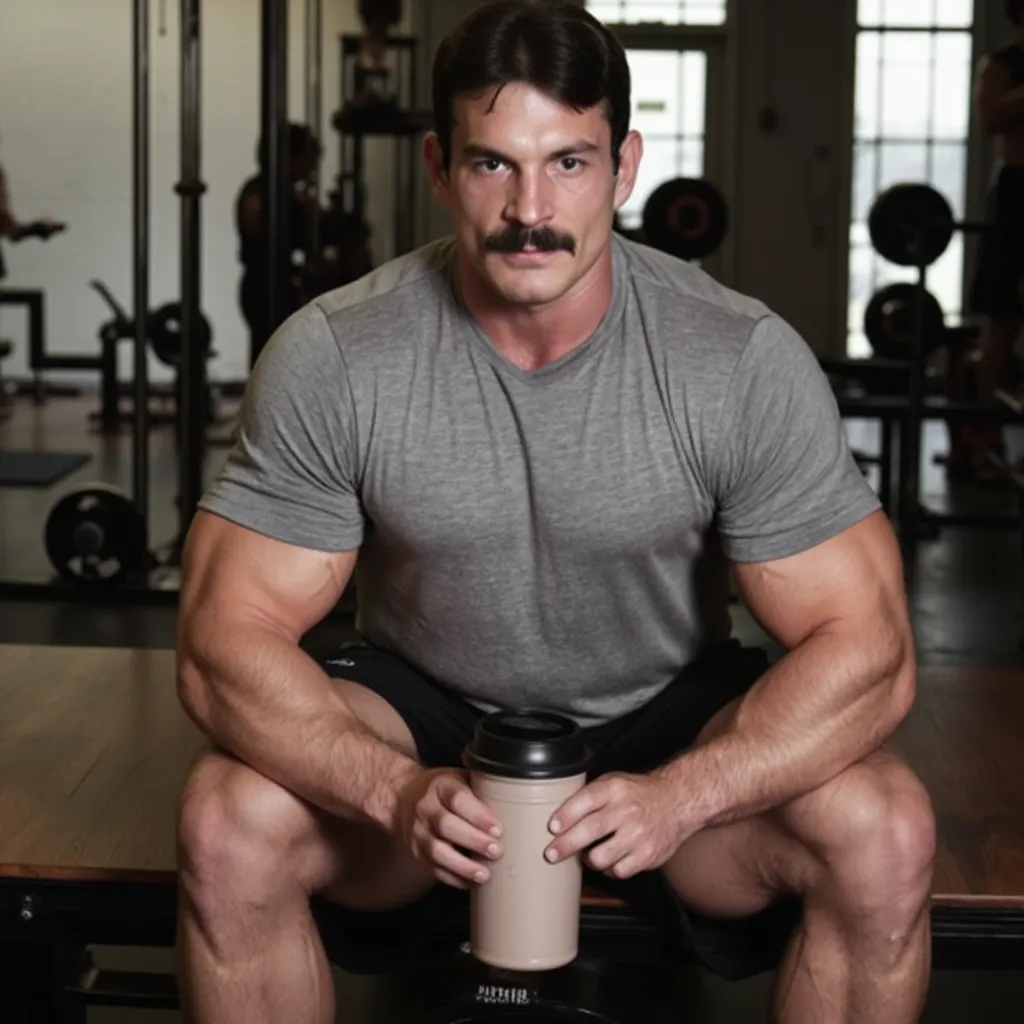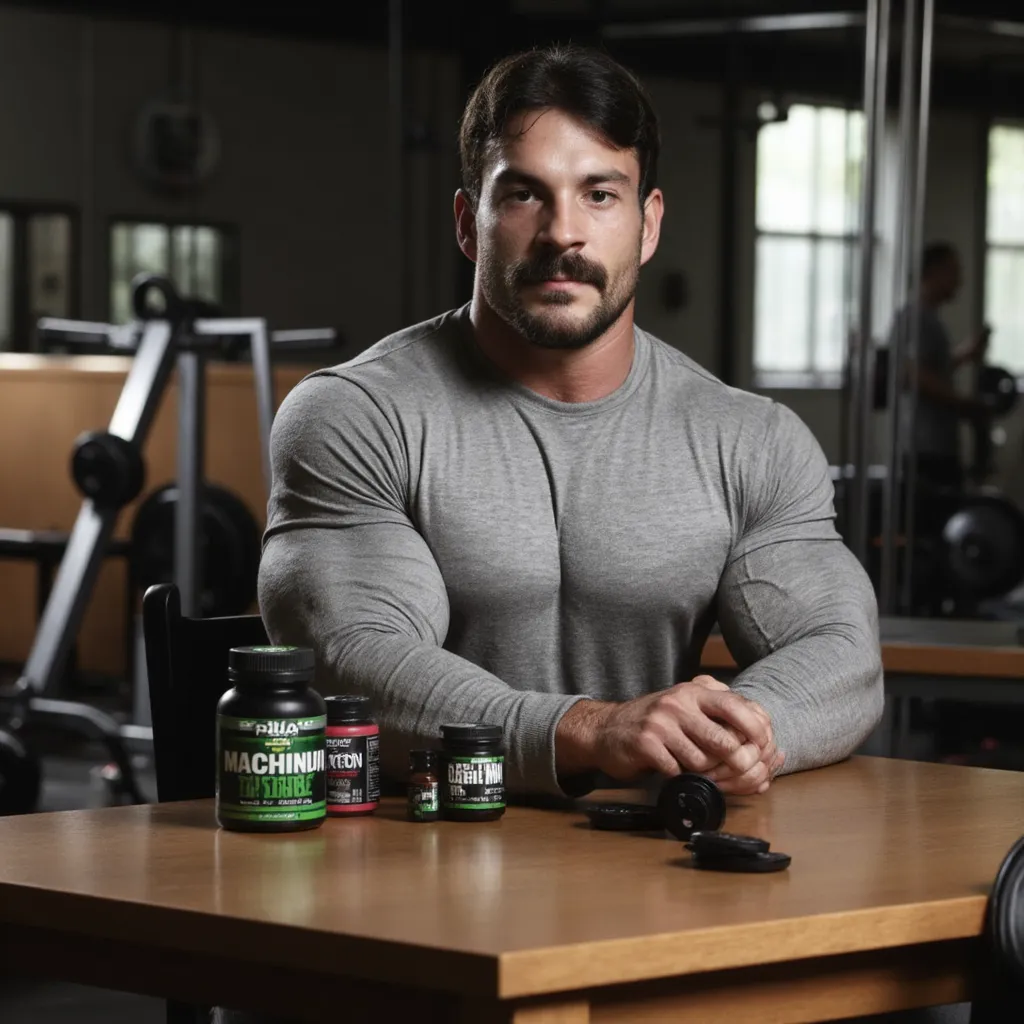Mike Mentzer’s Diet Plan

What He Ate to Build a Champion Physique
Mike Mentzer believed that diet played a key role in building strength and muscle. He focused on a balanced intake of protein, fats, and carbohydrates to support muscle growth and recovery. Depending on his training goals, he adjusted his food intake, following a bulking diet to gain mass and a cutting diet to maintain definition. His philosophy emphasized quality nutrition over extreme restrictions, ensuring steady progress in his workouts. This article will go over Mike Mentzer’s diet plan, including his daily eating habits and how his workout and diet worked together for peak performance.
- Published: March 14, 2025
- Last Updated: March 17, 2025
-
-

Mike Mentzer Diet Philosophy
He approached nutrition with a simple yet effective mindset. While his high-intensity training demanded structure and discipline, his diet plan was more relaxed. He prioritized fueling his body rather than obsessing over every detail.
Instead of following rigid meal plans, he focused on consuming enough calories to support muscle growth. His philosophy emphasized the importance of balanced nutrition but without overcomplicating things.
- Four essential food groups: He believed in getting daily nutrition from cereals and grains, fruits and vegetables, meat, fish, poultry, and dairy products. He followed a well-rounded diet rather than eliminating food groups.
- Macronutrient balance: His recommended ratio was 60% carbohydrates, 25% protein, and 15% fat. This approach provided ample energy for intense training sessions.
- High-carb focus: He maintained a high-carbohydrate intake to fuel his workouts and support muscle recovery. Unlike modern diets that emphasize low-carb strategies, he believed carbs were necessary for strength and endurance.
- Calorie intake over macros: While he acknowledged the importance of macronutrients, he placed greater emphasis on hitting overall calorie goals rather than tracking every gram of protein, carbs, or fat.
- Flexible eating habits: Despite his strict approach to training, his diet plan wasn’t overly rigid. He didn’t overanalyze meals but ensured they provided enough energy.
- Keeping a food diary: He encouraged beginners to track their food intake to fine-tune their diet for muscle growth. Writing down meals helped ensure enough nutrients and calories were consumed.
- Bulking philosophy: Unlike modern approaches that prioritize lean bulking, he advised beginners to accept some fat gain to build muscle efficiently.
The Mike Mentzer diet philosophy is all about simplicity and effectiveness. He believed in eating enough to sustain heavy training without overcomplicating meal planning.
-

Foods To Target In The Mike Mentzer Diet
Mike Mentzer believed that a diet should be sustainable rather than overly restrictive. He saw no point in cutting out foods entirely, as long as they fit into his overall calorie and nutrition goals. While many bodybuilders avoided treats, he had no problem eating ice cream if it aligned with his intake.
When cutting, he kept his calories under 2,000 per day but didn’t follow a rigid plan. Given his intense training routine, even a relaxed diet structure worked in his favor. While processed and fried foods weren’t ideal, he didn’t completely eliminate them, especially when bulking.
- Lean meats: Beef and lamb were key protein sources, providing the necessary fuel for muscle growth and recovery.
- Fish and seafood: Options like salmon, tuna, and shrimp were included for their protein content and beneficial fats.
- Eggs: A staple in Mike Mentzer’s diet plan, eggs provided protein and healthy fats to support muscle repair.
- Poultry: Chicken and turkey were reliable sources of lean protein that fit well into both bulking and cutting diets.
- Nut butters: Peanut butter and almond butter were easy ways to add healthy fats and extra calories when needed.
- Dairy products: Milk, yogurt, and cheese contributed to his diet by supplying protein, calcium, and essential fats.
- Fresh produce: Fruits like apples, oranges, and bananas, along with leafy greens and root vegetables, ensured a good intake of vitamins and minerals.
- Whole grains: Bread, pasta, and oats helped maintain high energy levels, especially important for his demanding workouts.
- Healthy fats: Butter and olive oil provided necessary fats to support overall energy balance and recovery.
He didn’t believe in overcomplicating nutrition or depriving himself of foods he enjoyed. His approach focused on meeting calorie needs, balancing macronutrients, and allowing flexibility while still prioritizing high-quality whole foods.
-

Breakfast
Mike Mentzer kept his breakfast simple, focusing on foods that provided sustained energy without unnecessary restrictions. While many bodybuilders followed high-protein morning meals, his approach leaned towards a balanced mix of carbohydrates, fats, and fiber.
His breakfast choices reflected his belief that nutrition should support training while being easy to maintain. During competitions, he didn’t stray from routine, sticking to a straightforward yet satisfying meal that helped fuel his workouts.
- Bran muffins with butter: A source of fiber and slow-digesting carbohydrates, providing lasting energy for training sessions.
- Seven-grain toast: A nutrient-dense option that contributed to his overall carbohydrate intake for the day.
- Figs: A natural source of sugar, fiber, and essential minerals, giving him a quick energy boost in the morning.
- Coffee: He drank two to three cups, using caffeine to increase alertness and maintain focus throughout the day. If you don’t like coffee, you can opt for AG1 as an alternative for your morning drink.
His diet plan was never about unnecessary complications. He ensured his nutrition supported both his training and overall well-being by keeping his diet routine simple.
-

Post Workout Meal
Mike Mentzer understood the importance of replenishing nutrients after a demanding workout. His post-workout meal was designed to help with muscle recovery while keeping things simple and effective.
He didn’t complicate his nutrition but made sure to consume a combination of protein and carbohydrates to refuel his body. During his competition days, his focus remained on whole foods that supported strength and endurance without unnecessary restrictions.
- Milk and egg protein drink: A protein-rich combination that provided essential amino acids for muscle repair and growth.
- Fresh fruit: Options like pineapple and grapes were his go-to choices, offering natural sugars to restore glycogen levels and aid recovery.
Mike Mentzer’s diet routine focused on getting the right nutrients without overcomplicating meals. His post-workout routine followed the same principle—energize the body with high-quality protein and carbohydrates to ensure optimal recovery and performance.
-

Afternoon Meal
Mike Mentzer believed that eating should be practical and stress-free, even for a competitive bodybuilder. Instead of following overly structured meal plans, he focused on foods that kept him feeling satisfied and ready for his next training session.
- Baked potato: A slow-digesting carbohydrate that helped sustain energy levels and aided muscle recovery.
- Fresh fruit: He often chose apples, grapes, or oranges, which provided natural sugars, fiber, and essential vitamins.
Rather than obsessing over every detail of his diet, he focused on making smart choices that kept him performing at his best.
-

Dinner
Mike Mentzer’s approach to dinner followed the same philosophy as the rest of his diet—balanced and practical. While many bodybuilders at the time stuck to strict meal plans, he allowed himself some flexibility, occasionally indulging while still maintaining a structured eating routine.
- Chicken breasts: A lean protein source that supported muscle recovery and helped meet his daily protein intake.
- Salad: A mix of fresh vegetables provided fiber, vitamins, and minerals to complement his meal.
- Corn on the cob: A natural carbohydrate source that contributed to his overall energy levels and digestion.
- Ice cream (occasionally): Unlike many bodybuilders, he didn’t completely avoid desserts, enjoying treats in moderation.
He believed in consistency over extreme dieting. His dinner choices reflected this mindset, giving him the nutrients needed to sustain his training while allowing room for occasional indulgences.
-

Supplements
Mike Mentzer came from an era where steroid use was common among competitive bodybuilders, and he never shied away from discussing it openly. He educated people on the effects and risks while also addressing common misconceptions.
While steroids played a role in his approach, he didn’t rely on them alone. He used supplements to support his diet, especially during periods of reduced calorie intake.
- Multivitamin and mineral supplement: He took these to prevent nutrient deficiencies, especially when cutting calories. A well-rounded multivitamin helped him maintain energy levels, immune function, and overall health during intense training.
- Milk and egg protein powder: A convenient way to increase protein intake, helping with muscle repair and growth. This combination provided essential amino acids that supported muscle recovery and prevented muscle breakdown.
- Creatine: Used to enhance strength, endurance, and recovery, making it a valuable addition to his training routine. Creatine helped improve high-intensity performance and supported muscle hydration, which was crucial for heavy lifting.
For those looking to optimize their diet without steroids, there are several effective supplements that can support muscle growth and overall health:
- Whey protein: A high-quality protein source that aids in muscle recovery after workouts. It provides fast-digesting amino acids, making it an excellent option for post-workout nutrition to promote muscle repair and growth.
- Omega-3 fatty acids: Supports joint health, reduces inflammation, and promotes heart health. Found in fish oil or algae-based supplements, omega-3s also help improve cognitive function and overall recovery.
- Vitamin D: Essential for bone strength, immune function, and overall well-being. Many people don’t get enough sunlight exposure, making supplementation necessary to maintain proper hormone balance and muscle function.
- Magnesium: Helps with muscle relaxation, recovery, and better sleep quality. It plays a key role in energy production and can reduce muscle cramps and soreness after intense training.
- Electrolytes: Crucial for hydration, muscle function, and preventing cramps during intense training. They replenish sodium, potassium, and other minerals lost through sweat, ensuring optimal performance and endurance.
- NMN (Nicotinamide Mononucleotide): Supports cellular energy production and longevity by boosting NAD+ levels. This supplement may help improve metabolism, enhance recovery, and reduce oxidative stress, making it beneficial for athletes and those engaged in intense training.
While steroids were part of his routine, he also relied on key nutrients to support his training and diet. For those following the Mike Mentzer diet plan today, focusing on quality supplements can be an effective way to maintain performance and recovery.
-










